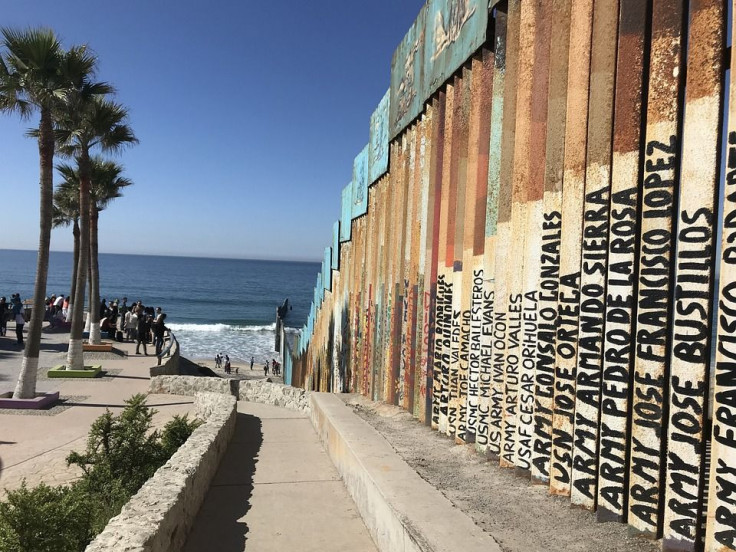
U.S. Customs and Border Protections agents in California are resorting to unused federal resources to beef up security and crack down on unlawful immigration and drug smuggling.
Concretely, agents at the El Centro Sector in Southern California built a second border wall as it seeks to increase fentanyl interdictions. "What we don't want is paralysis by analysis, or to wait or to hesitate," said sector chief Gregory Bovino, according to Border Report.
"We have to do it fast. And we have to do it hard, because guess what? The bad guys on the south side — they do it fast and hard. We have to do it faster and harder," he added. The actions come as a response to cartels' own, as members cut sensor bars and cross through residential areas where they can easily hide immediately after entering the U.S.
Agents have also deployed a series of reinforcing actions, including ATVs, foot and vehicle patrolling, but they are mostly relying on the secondary wall.
The increased efforts come as Mexico's seizure of fentanyl, most of it U.S.-bound, has dropped dramatically so far this year, according to figures released by the Defense Department and reported by ABC News.
Concretely, Mexican federal forces have only seized 286 pounds (130 kilograms) of the opioid in the first six months of 2024, a 94% year-on-year decrease. The figure was 5,135 pounds (over 2,300 kilograms) in the first half of 2023.
Efforts by Mexican law enforcement seem to have shifted toward methamphetamines, much more consumed in the country than fentanyl. Meth seizures reached a record 400 tons last year, a 1,200% increase compared to 2022. And figures on the same track in 2024, as they currently stand at 168 tons.
The outlet explained that meth is also exported to the U.S., but unlike fentanyl it is also consumed domestically. The opioid has been linked for some 70,000 overdose deaths in the U.S. every year, 70% of all such deaths in the country according to a report by the Centers for Disease Control and Prevention (CDC), and officials acknowledging it as a public health emergency.
State governments have taken measures of their own to beef up security and deal with local issues. Last week, Texas Governor Greg Abbott said state authorities reinforced the border along the El Paso-Ciudad Juárez sector with "triple-strand" razor wire to deter unlawful immigration.
The governor has linked the decision with President Joe Biden's decision to withdraw from the 2024 elections and endorse his vice president, Kamala Harris. Abbott is among several Republicans seeking to convey the message that Harris did a poor job when tasked with reducing migration by addressing what the administration defined as the "root causes," namely poverty and insecurity in Central American countries.
© 2025 Latin Times. All rights reserved. Do not reproduce without permission.





